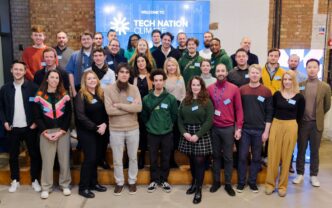The use of AI agents in the workplace is set to skyrocket. According to a report by Boston Consulting Group, the AI agent market is expected to grow at a 45% compound annual rate over the next five years. As companies seek smarter tools to improve operations, AI agents. Which can learn, adapt, and integrate into workflows—are emerging as a game-changer. One startup at the center of this shift is Relevance AI, a platform that helps businesses build and manage teams of AI agents.
The company has just closed a $24 million Series B round, led by Bessemer Venture Partners. With support from returning investors King River Capital, Insight Partners, and Peak XV. This brings the Sydney- and San Francisco-based company’s total funding to $37 million.
Relevance AI is positioning itself as the “operating system” for AI agents. Its tools enable businesses to onboard agents just like human employees. Granting them access to company data and allowing them to perform specialized tasks. Unlike static automation tools, Relevance’s AI agents are built to learn and evolve over time.
“We enable businesses to train AI agents for specific, niche workflows,” said co-CEO and co-founder Daniel Vassilev. “And because our platform is both tool- and model-agnostic, teams can leverage their full tech stack—across any vendor.”
Growth, Competition, and the Future of AI Workforces
Relevance AI has seen rapid adoption. In January 2025 alone, more than 40,000 AI agents were created on its platform. Customers include well-known companies such as Qualified, Activision, and Safety Culture. The startup is growing quickly, scaling its team from just 19 employees in 2023 to 80 across its offices in Sydney and San Francisco.
The company is also facing growing competition. Rivals like Retell, Qeen.ai, SmythOS, Gooey.AI, Cykel AI, and Microsoft are developing similar agent platforms. Still, Relevance believes its unique approach stands out. Rather than offering agents locked into a single software ecosystem, the platform supports custom workflows, cross-tool integration, and flexibility across models.
As Vassilev points out, even major players like Salesforce are now investing heavily in AI agent technologies. But Relevance aims to stay ahead by focusing on customization and ease of use.
Introducing “Workforce” and “Invent” for No-Code AI Teams
To build on its momentum, Relevance is rolling out two new features designed to help businesses adopt AI agents even faster.
Workforce is a no-code system that lets teams—technical or not—create groups of agents that can collaborate like human employees. These agents can work together to handle complex, multi-step processes from beginning to end. This feature lowers the barrier for non-developers to launch advanced AI solutions inside their organizations.
The second tool, Invent, lets users build AI agents using simple text prompts. This functionality aligns with the growing trend of prompt-based development, making it easy to design and deploy custom agents without writing any code.
Vassilev has recently relocated to San Francisco to open a U.S. office and lead Relevance’s go-to-market expansion. The company plans to use its new funding to improve its core product, enhance customer support, and grow its presence in its two key markets: the United States and Australia.
By giving businesses the power to build intelligent, task-driven teams of AI agents, Relevance AI is working to redefine how work gets done. As the company continues to innovate, its flexible, scalable approach could put it at the forefront of the AI agent revolution.













